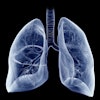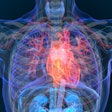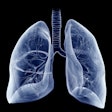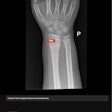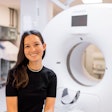
Radiology-oriented artificial intelligence (AI) software figured prominently on the list of initial winners of the U.K. government's new AI in Health and Care Award, which will provide a total of 140 million pounds (154.3 million euros) in funding over three years to support the testing and evaluation of AI technology.
The NHSX -- the digital service of the National Health Service (NHS) -- announced the first awards for the initiative on 8 September. Run by the NHS Accelerated Access Collaborative (AAC) in partnership with the NHSX and the National Institute for Health Research, the award program will support AI technologies across the spectrum of development and focus on four areas: screening, diagnosis, decision support, and improving efficiency, according to the NHS.
In the initial competition, the NHS received 530 applications and made 42 awards -- including 13 for radiology AI-oriented technologies -- across four different phases of projects.
Phase 4 projects are intended to identify medium-stage AI technologies that have market authorization but have insufficient evidence to merit large-scale commissioning or deployment, according to the NHS. These award amounts are uncapped and are provided on a per-technology basis.
What's more, the AAC delivery team will work with NHS sites to support the adoption of these technologies and stress-test and evaluate them within routine clinical or operational pathways to determine efficacy or accuracy as well as clinical and economic impact, the NHS said.
Radiology-oriented winners of phase 4 contracts included the following:
- Aidence: Veye -- an AI platform to optimize oncology pathways
- Brainomix: e-Stroke Suite -- a set of AI-based tools to interpret acute stroke brain scans
- Kheiron Medical Technologies: Mia Mammography Intelligent Assessment -- deep-learning software aimed at solving critical challenges in the NHS Breast Screening Program
- Mirada Medical: DLCExpert -- AI software for automating the task of contouring healthy organs on medical images for radiotherapy planning
- Ultromics: EchoGo Pro -- a fully automated and scalable application for quantification and interpretation of stress echocardiograms
With its phase 1-3 project awards, the NHS said it aims to facilitate the development of a pipeline of projects for later years. Phase 3 projects are intended to support first real-world testing in health and social care settings to develop evidence of efficacy and preliminary proof of effectiveness, including evidence for routes to implementation to enable more rapid adoption, according to the NHS.
These awards are uncapped and are for a typical duration of 12-24 months. Successful phase 3 projects would then be eligible to apply for phase 4, the NHS said.
Radiology-oriented winners of phase 3 contracts included the following:
- Oxford Heartbeat: Real-world testing of Presize Neurovascular -- medical device software to optimize stenting surgeries to reduce complications
- Ultromics: EchoGo Pro -- NHS impact of automating coronary artery disease risk prediction in stress echocardiogram clinics
Phase 2 projects are intended to develop and evaluate prototypes of demonstration units and generate early clinical safety/efficacy data. The amounts for these projects are uncapped, and they are provided for a typical duration of 12-36 months, according to the NHS. Companies that successfully complete phase 2 projects can then bid for a phase 3 project.
Radiology-oriented winners of phase 2 contracts included the following:
- University of Sheffield: Interactively trained "human in the loop" deep-learning approach to improve cardiac CT and MRI assessment for accurate therapy response and mortality prediction
- Caristo Diagnostics: Artificial intelligence to improve cardiometabolic risk evaluation using CT (ACRE-CT)
The NHS also provided awards for phase 1 projects, which are intended to show the technical and clinical feasibility of a proposed concept, product, or service. Winners can receive up to 150,000 pounds (165,300 euros) over a 6- to 12-month period, and they can then bid for a phase 2 project if the phase 1 project was successful.
Radiology-oriented winners of phase 1 contracts included the following:
- University of Oxford: A fully automated tool to screen for fetal growth restriction in the first trimester
- University of Nottingham: Personalized preoperative (neoadjuvant) chemotherapy (NACT) to optimize curative treatment in breast cancer
- Mirada Medical: AI-enabled point-of-care technology for radiotherapy planning peer review
- Barts Health NHS Trust: Autonomous cardiac MR acquisition
The NHS said it is now working with all of the winners to finalize site selection and evaluation protocols. A second competition will also be held in November; more information can be found on the AAC's website.
The U.K. government also recently announced an investment of an additional 50 million pounds (56.2 million euros) to scale up the efforts of its existing digital pathology and imaging AI centers of excellence.


